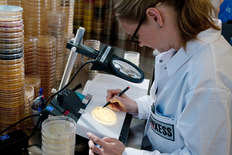
Expansion and Investment
LANXESS is expanding its production capacity for the active ingredient Preventol CMK (chlorocresol) at the Krefeld-Uerdingen site in Germany by around 50 percent. The company has invested a single-digit million euro amount for this expansion, which is scheduled for completion in the first quarter of 2022.
Rising Demand
The expansion is in response to the continuing strong demand for disinfectants and industrial preservation. Preventol CMK is marketed as a registered active ingredient for disinfection and preservation and is also used in LANXESS's own formulations under the Preventol and Virkon brands. The demand for these products has increased significantly due to factors such as African swine fever, avian influenza, and the COVID-19 pandemic.
Applications in Agriculture and Human Health
In agricultural businesses, disinfectants based on Preventol CMK help contain the spread of diseases and reduce the use of antibiotics in animal husbandry. The topic of biosecurity is gaining importance worldwide due to increasing population and meat consumption, leading to sustained demand for disinfectants. In human health, these disinfectants are used in hospitals and household applications.
Industrial Preservation
LANXESS also expects strong market growth in industrial preservation. CMK-based Preventol products have a broad spectrum of activity against molds, bacteria, and yeasts, making them suitable for applications in leather preservation and construction. These products meet stringent regulatory requirements worldwide and can replace formaldehyde-containing products in the construction industry. In the leather industry, they meet high technical requirements and rising standards in sustainability and toxicity.

